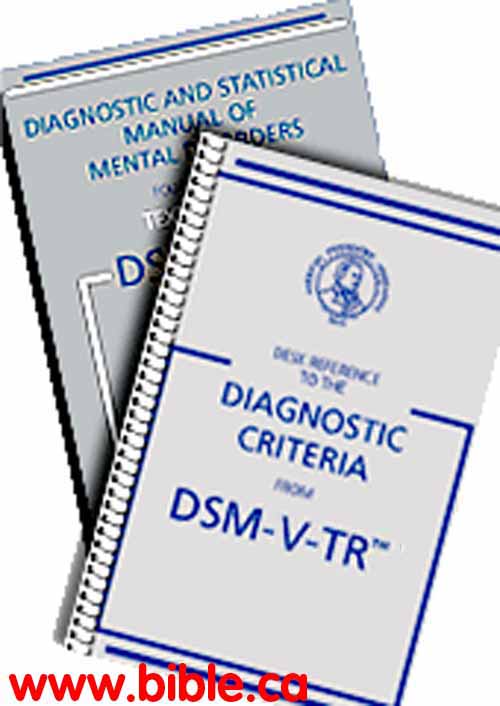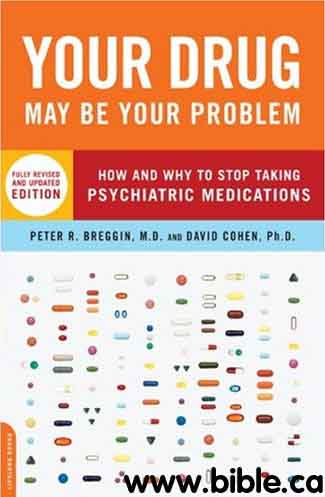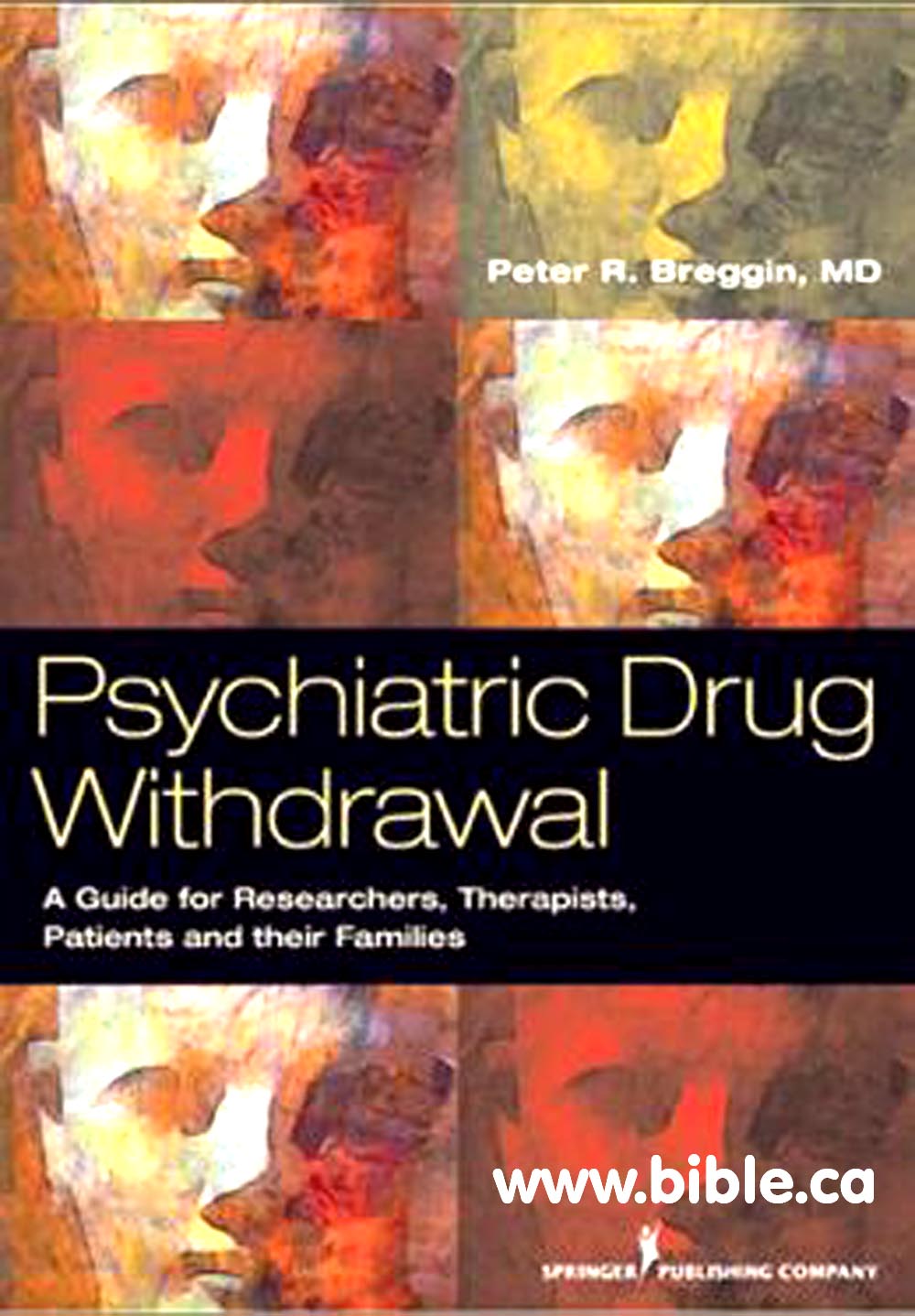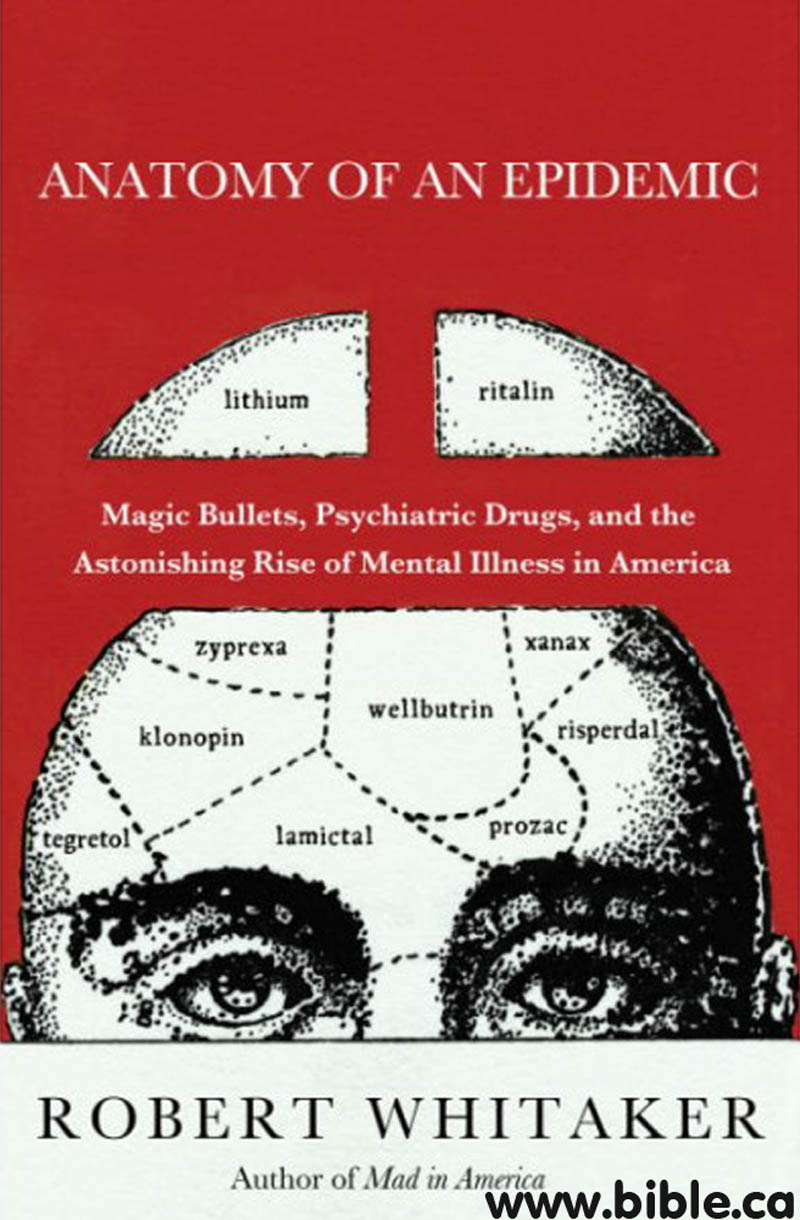DSM IV-TR Guidebook 2004 AD
|
Psychiatry is hostile to Christianity Forced into the evolutionary view that man is a mere “meat puppet” consisting of “soups and shocks, the non-physical spirit of man (dichotomy) is not only ignored but openly mocked! Man has both a body and a spirit. Choice mood and memory reside in the spirit not the body. Mental illnesses are behaviour choices. |
Introduction:
![]() See also: History
of Psychiatry homepage
See also: History
of Psychiatry homepage
DSM-IV-TR Guidebook mocks Christianity under the guise of "Descartes":
- The DSM hides behind "Descartes" which is actually a direct attack against Christianity. The dichotomous view of man with body and spirit that Descartes taught, was exactly what is taught in the Christian Bible. It doesn't raise as many red flags attacking Descartes, rather than Jesus Christ!
- Psychiatry openly mocks and ridicules God and Christians, calling Christian theology "foolish, misleading and obsolete". The Diagnostic and Statistical Manual of Mental Disorders is called the "Bible of Psychiatry". The DSM-IV is the central and most important book for classifying and diagnosing mental illnesses in North America. The most recent edition (2004 AD) has this to say about the Christian view that man has a spirit that is distinct from his body: this "dichotomy foolish and obsolete" ... "misleading derivative dichotomies" "Ryle's exorcism of the "ghost in the machine" (DSM-IV-TR Guidebook, 2004 AD, p 85, p14)
- The DSM-IV-TR Guidebook is the "Bible" of psychiatry today that is used in clinical practice in North America. It describes the Christian view that man is a non-material spirit inside a physical temporary body: "foolish, misleading and obsolete".
- "At least since Descartes there has been an unfortunate philosophical position that dichotomizes the mind and the body. The effects of Cartesian dualism of mind and body continue to plague psychiatric classification and are evident in the survival of other misleading derivative dichotomies (e.g., terms such as organic versus non-organic and mental disorders versus physical disorders). Fortunately, Descartes' dialectic is yielding to a modern synthesis forged by the converging trends of philosophy (Ryle's exorcism of the "ghost in the machine") and science (the emerging understanding of the specific ways in which the brain works to produce behaviors). The use of the term mental disorder in the title of DSM-IV-TR (The Diagnostic and Statistical Manual of Mental Disorders) is an anachronistic preservation of the Cartesian view. This term appears increasingly silly as we learn more and more about the physical correlates of thought, emotion, and psychopathology. The term most frequently suggested as an alternative to replace mental disorders has been brain disorders, but this is equally unfortunate and reductionist in the opposite extreme. Preferable terms for the universe of conditions defined in DSM-IV would be psychiatric disorders or psychological disorders, but neither of these is feasible because of the possible professional turf conflicts they might incite among psychiatrists, psychologists, and other mental health professionals. Unfortunately, we could not come up with a better term than mental disorders and thus it survives in DSM-IV-TR." (DSM-IV-TR Guidebook, 2004 AD, p 14)
- Amazingly, the DSM IV-TR makes this stunning admission:
- “Szasz and others have argued that psychiatry has taken upon itself the unsavory task of pathologizing statistically or morally deviant individuals. Perhaps that has indeed been the case to some degree for Antisocial Personality Disorder, Conduct Disorder, Intermittent Explosive Disorder, Paraphilia, Substance Abuse, and a few other DSM-IV diagnoses. In addition to the risk of forensic misuse, an over-inclusive definition of mental disorder might give the profession a wider purview of influence and social control than it can reasonably handle. On the other hand, psychiatry often does have much to say, or at least much to learn, even about these most questionable conditions. It should also be emphasized that an individual diagnosed with a mental disorder is by no means automatically relieved from legal or other responsibility.” (DSM-IV-TR Guidebook, 2004 AD, p 15)
- These chemical imbalances are a myth, with no science to prove they exist, only theory!
- "The Retirement of the Term Organic: The accumulating knowledge about the biological factors that contribute to the traditionally nonorganic mental disorders has made this "organic" versus "nonorganic" dichotomy foolish and obsolete. For example, no one would seriously argue that Schizophrenia or Bipolar Disorder are unrelated to brain dysfunction." (DSM-IV-TR Guidebook, 2004 AD, p 85)
- Schizophrenia or Bipolar Disorder are both behavior choices. Chemical imbalances never exists in the brain until psychiatrists create them with their prescribed drugs which they call treatment but are in fact poison.
- Neuroleptic and anti-psychotic drugs do not fix this imagined "chemical imbalance" but merely tranquilize and stupefy.
- Mental illness is a spiritual problem, not a biological problem. Giving drugs to fix the brain of mentally ill people is like overhauling the engine of a car because the driver keeps hitting telephone poles.
- Also see our section on the history of psychiatric myths:
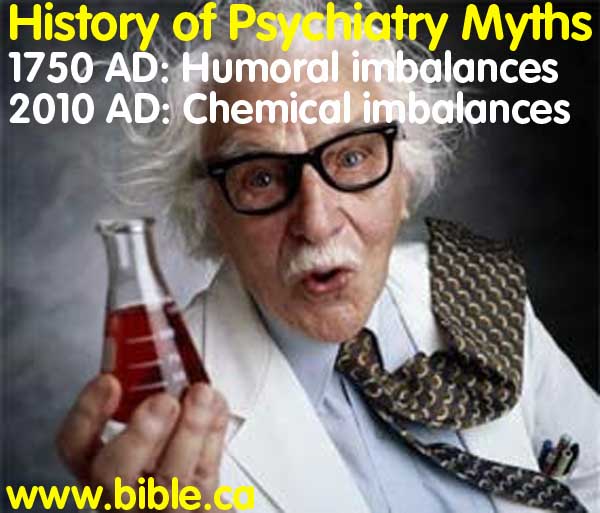
|
|
||
|
Recommended Reading |
||
|
|
||
|
Buy Peter Breggin, David Cohen, 2007 AD |
Buy Peter Breggin, 2013 AD |
Buy Robert Whitaker, 2010 AD |
|
|
||
By Steve Rudd: Contact the author for comments, input or corrections.
Send us your story about your experience with modern Psychiatry
